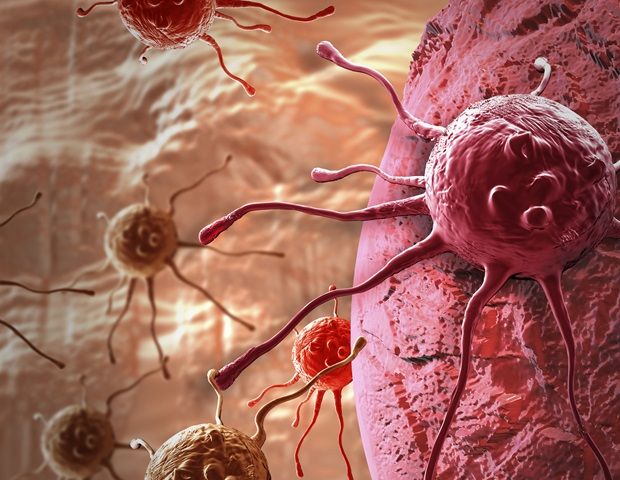The saying “God doesn’t play dice” is meant to suggest that nothing happens by chance. On the other hand, cancer seems like the ultimate happenstance: Don’t we all have a 43-year-old, vegan, triathlete friend fighting cancer? Does this mean that cancer plays dice? According to the traditional model of how cancer develops, yes: Every time a cell divides, you roll a die, and the more years you roll, the greater your chance of rolling an unfortunate mutation that causes cancer. Some young people get very unlucky and some older people get very lucky, but overall, the longer you live, the more times you roll the die, the greater your risk of developing cancer. It makes perfect sense.
Only, a University of Colorado Cancer Center study published in the journal eLife points out a simple problem with this model: Many cancers require more than one activating mutation. In other words, not only one but multiple unlikely bad things have to happen to cause cancer. Think of this like rolling multiple dice, or perhaps like rolling an unlucky number on a single die, multiple times. Say you’re rolling a 100-sided die with “42” being a cancer-causing mutation. You would expect it to take longer to roll four 42s than it does to roll one 42, right?
But the current study shows that no matter the number of unlucky events needed to cause a specific kind of cancer, cancer risk rises equally with age. On average, it takes only one mutation to cause mesothelioma, eleven mutations to cause colorectal cancer, and four mutations to cause pancreatic cancer. But despite the dramatically different Vegas odds of “rolling” one, four and eleven “42s,” the incidence of these cancers goes up uniformly with age, accelerating from about age 60 to about age 85. In this case, it does not, in fact, take longer to roll eleven 42s than it takes to roll one 42.
